By Muhammad Lawal, News Agency of Nigeria (NAN)
Flooding is a natural disaster that happens when water spills over into usually dry land, often resulting in extensive damage.
It can be caused by heavy downpours or human factors such as deforestation and inadequate urban planning.
Nigeria has faced severe river and coastal flooding, leading to substantial destruction.
In 2012, excessive rainfall caused the Niger and Benue Rivers to overflow, impacting communities across 30 states.
Over 2.3 million people were displaced, more than 360 lives were lost, and economic losses reached ₦2.6 trillion ($7.4 billion).
A decade later, in 2022, another major flood affected 33 states, displacing 1.4 million people and killing over 600.
Kogi, Anambra, and Bayelsa were among the worst affected due to intense rainfall and the release of water from Ladgo Dam in Cameroon.
Evidently, the consequences of flooding are severe, ranging from loss of life and destruction of property to economic hardship and displacement of entire communities.
Albeit the inevitability of floods, analysts believe that proactive measures can help mitigate their impact.
According to them, floodplain management, control structures, early warnings, and watershed management are crucial for reducing risks and improving preparedness.
They argued that to safeguard communities, Nigeria must prioritise urban drainage improvements, river dredging, and enhanced flood mitigation policies.
Kebbi was among the hardest-hit areas during the 2024 rainy season, with devastating floods leaving many farmers impoverished and homeless.
Media reports indicate that severe flooding in the state in 2024 affected 16 of its 21 Local Government Areas (LGAs), with Argungu, Birnin Kebbi, Ngaski, Jega, and others worst hit.
The disaster destroyed about 329,000 homes and submerged 858,000 hectares of farmland used for rice, millet, sorghum, and beans.
Tragically, 29 people died, with fatalities recorded in Ngaski, Maiyama, Kalgo, Jega, and Birnin Kebbi.
To support farmers and mitigate crop losses, Gov. Nasir Idris introduced the ‘Residual Moisture for Cultivation of Crops’ strategy.
This method uses moisture left by the floods to irrigate fast-growing crops, helping farmers recover and turn adversity into opportunity.
The initiative provided farmers with improved seeds for potatoes, cassava, and maize, as well as fertilisers and chemicals; all free of charge.
The goal was to help them recover their losses and resume normal agricultural activities.
Under the scheme, no fewer than 16,000 farmers benefitted from government support to rebuild their livelihoods.
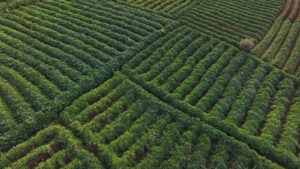 During an inspection tour of the affected communities, Alhaji Shehu Ma’azu, Commissioner for Agriculture and Natural Resources in Kebbi, provided insights into the programme’s objectives.
During an inspection tour of the affected communities, Alhaji Shehu Ma’azu, Commissioner for Agriculture and Natural Resources in Kebbi, provided insights into the programme’s objectives.
He revealed that the pilot scheme was implemented in Raha (Bunza LGA), Bahindin Bagugo (Bagudo LGA), and Mayalo (Maiyama LGA), where farmers received essential agricultural inputs.
“When the devastating floods struck, the state government, through this ministry, promptly supplied improved seeds, fertilisers, and chemicals to support affected farmers.
“We are happy that the selected farmers used the seeds, fertilisers, and other inputs supplied to them very well. Today, we are here to inspect what you have done and report back to the governor what we saw.
“Glory be to God Almighty, these people have recovered, and the seeds supplied to them were fantastic as they yielded the desired results,” Ma’azu stated.
Similarly, Alhaji Yakubu Ahmed-BK, Commissioner for Information and Culture, underscored the importance of food security, urging farmers to remain steadfast in their work.
“Everybody’s concern today is about what to eat, indicating that food is critical to human existence.
“Farm is wealth,” he remarked, encouraging farmers to stay committed to agriculture.
He also called on communities to pray for the success of Gov. Idris’ administration, which has prioritised youth and farmer empowerment.
The initiative has been widely praised by the beneficiaries, with many confirming its positive impact on their lives.
Speaking on behalf of the affected farmers, Alhaji Abubakar Walin-Raha, who represented the District Head of Raha, commended the governor for his foresight and proactive approach.
“We are very happy that these seeds are extremely good. We used them and saw how effective they are.
“We want to plead with the state government to assist us with pumping machines so that we can embark on irrigation of these three crops,” he appealed.
Similarly, Malam Bala Dan-Malam, a peasant farmer in Raha, expressed deep appreciation for the government’s intervention.
He noted that the initiative had boosted their morale and improved their farming methods.
He also urged the state government to consider expanding the scheme into an all-year-round farming system to ensure continuous agricultural productivity.
Other farmers shared their experiences and hopes for the future.
Alhaji Bawa Sani, Sarkin Noman Raha, emphasised the need for continued government support.
“We are very grateful to the Kauran Gwandu administration. This scheme has actually turned our pains into wealth because all those who participated are now very happy due to high yields.
“As farmers, we would be delighted if this scheme is extended to others affected by floods across the state. I believe this will go a long way in cushioning the effects of the disaster”.
Likewise, Alhaji Tukur Umar, District Head of Bahindin Bagugo, confirmed that after planting the seeds, he also received three truckloads of fertiliser, which he distributed among 40 village heads in his district.
A veteran farmer, Malam Abubakar Mai-Kifi, who has been in agriculture for over 40 years, described the government-provided maize seeds as the best he had ever used.
Another beneficiary, Malam Musa Mai-Dala’ilu, revealed how the initiative had encouraged more people, including those who had never farmed before, to embrace agriculture.
Also, Alhaji Muhammad Sani, Marafan Mayalo, expressed gratitude to Gov. Idris for his commitment to restoring livelihoods.
“We are happy that after the flood, life is returning to normal.
“We appreciate the governor for this gesture and also for reconstructing the collapsed bridge during the rainy season,” he concluded.
Stakeholders say With the Residual Moisture Crop Production initiative, Kebbi is setting a precedent in flood recovery efforts, turning adversity into opportunity.
This programme, they said ensures that affected communities can rebuild stronger and develop more resilient agricultural systems. (NANFeatures)



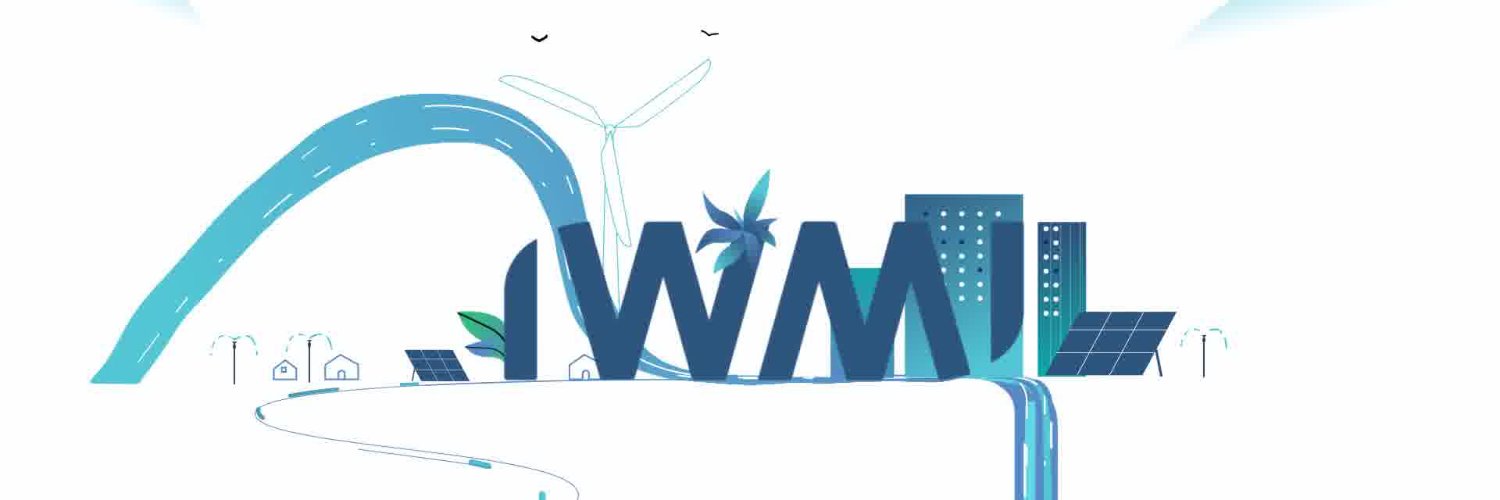

 He assured the World Bank of the federal government’s commitment to a smooth rollout of the project and long-term partnership.
He assured the World Bank of the federal government’s commitment to a smooth rollout of the project and long-term partnership.
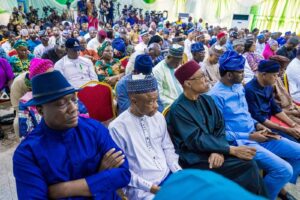 He added that more than 1,300 young people had been trained in technical fields such as pump installation and drilling technology.
He added that more than 1,300 young people had been trained in technical fields such as pump installation and drilling technology. He thanked President Bola Tinubu for his support and acknowledged the efforts of state governments, development partners, stakeholders, and the media.
He thanked President Bola Tinubu for his support and acknowledged the efforts of state governments, development partners, stakeholders, and the media.
 She emphasised the importance of harnessing the creativity and energy of young people to promote sustainable agriculture in alignment with President Bola Tinubu’s Renewed Hope Agenda.
She emphasised the importance of harnessing the creativity and energy of young people to promote sustainable agriculture in alignment with President Bola Tinubu’s Renewed Hope Agenda. Mr Inuwa Musa, Co-chair of the 6th ARCID Task Team noted that while advancements are being made, they must be accelerated to meet the demands of a growing population and the increasing impacts of climate change.
Mr Inuwa Musa, Co-chair of the 6th ARCID Task Team noted that while advancements are being made, they must be accelerated to meet the demands of a growing population and the increasing impacts of climate change. Jimoh, a former Managing Director/CEO of the Ogun-Osun River Basin Development Authority, reiterated the need for year-round food production.
Jimoh, a former Managing Director/CEO of the Ogun-Osun River Basin Development Authority, reiterated the need for year-round food production. He noted that their collaborative work would pave the way for developing actionable strategies in the irrigation and drainage sector for both Nigeria and the African continent.
He noted that their collaborative work would pave the way for developing actionable strategies in the irrigation and drainage sector for both Nigeria and the African continent.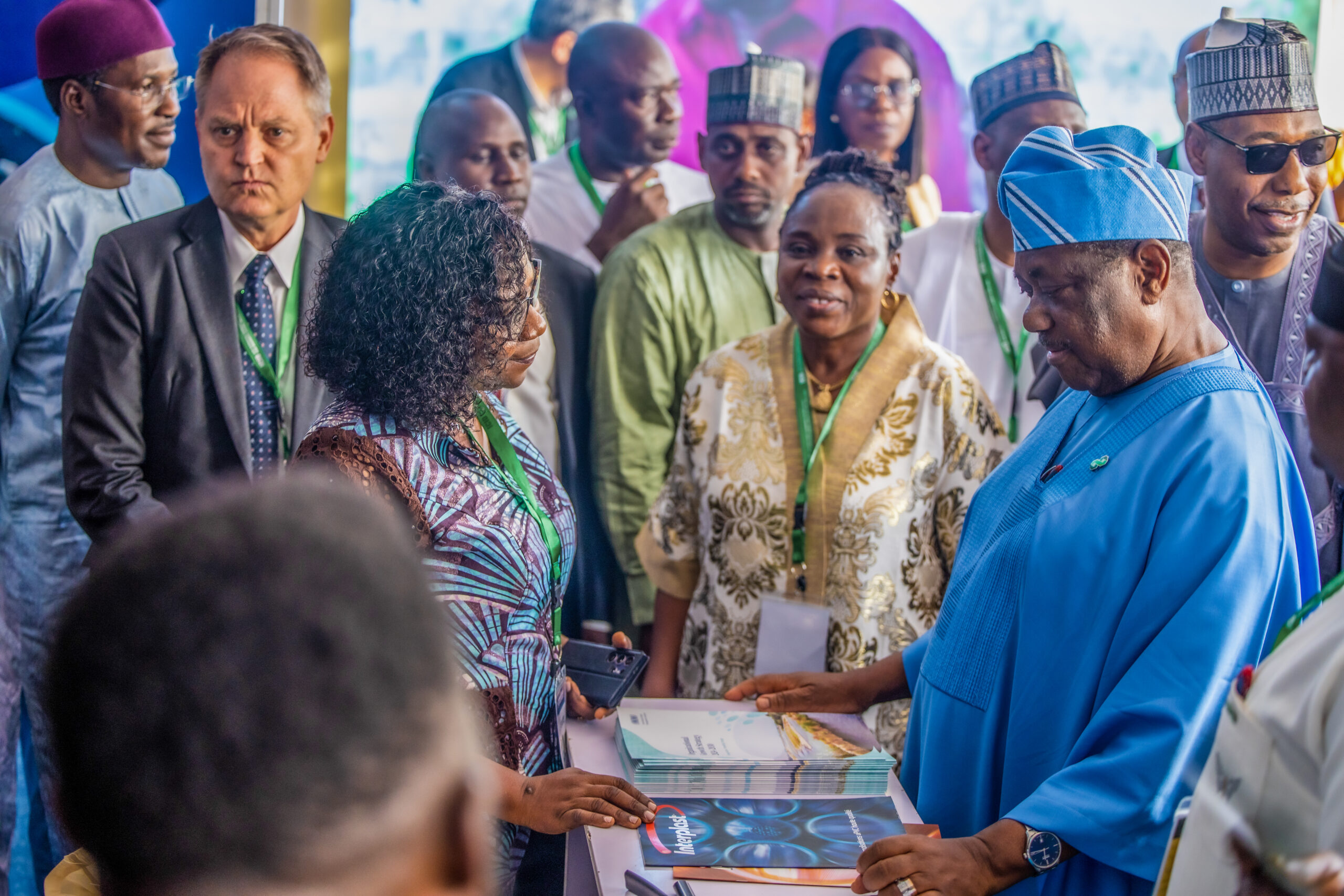
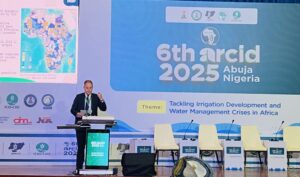 He emphasised the importance of focusing on practical, inclusive, and climate-smart solutions.
He emphasised the importance of focusing on practical, inclusive, and climate-smart solutions. 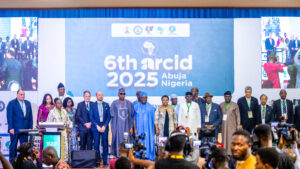 Cofie highlighted IWMI’s role in developing Nigeria’s flood early warning and anticipatory response system, known as the AWARE platform.
Cofie highlighted IWMI’s role in developing Nigeria’s flood early warning and anticipatory response system, known as the AWARE platform. 
 According to the minister, the TRIMING project, which spanned more than seven years, delivered notable achievements, including the completion of the Dadin-Kowa and Bakolori irrigation schemes and 90 per cent completion of the Middle Rima Valley irrigation project.
According to the minister, the TRIMING project, which spanned more than seven years, delivered notable achievements, including the completion of the Dadin-Kowa and Bakolori irrigation schemes and 90 per cent completion of the Middle Rima Valley irrigation project.  Gov. Babagana Zulum of Borno, raised concerns over the shrinking farming seasons caused by climate change, warning that unpredictable rainfall patterns were creating uncertainty among farmers.
Gov. Babagana Zulum of Borno, raised concerns over the shrinking farming seasons caused by climate change, warning that unpredictable rainfall patterns were creating uncertainty among farmers. Arcieri emphasised the role of young professionals in driving sustainable solutions to the continent’s water challenges.
Arcieri emphasised the role of young professionals in driving sustainable solutions to the continent’s water challenges.
 The minister also noted that, to facilitate the expansion of the existing irrigation farm, a contract had been awarded for the construction of water channels.
The minister also noted that, to facilitate the expansion of the existing irrigation farm, a contract had been awarded for the construction of water channels.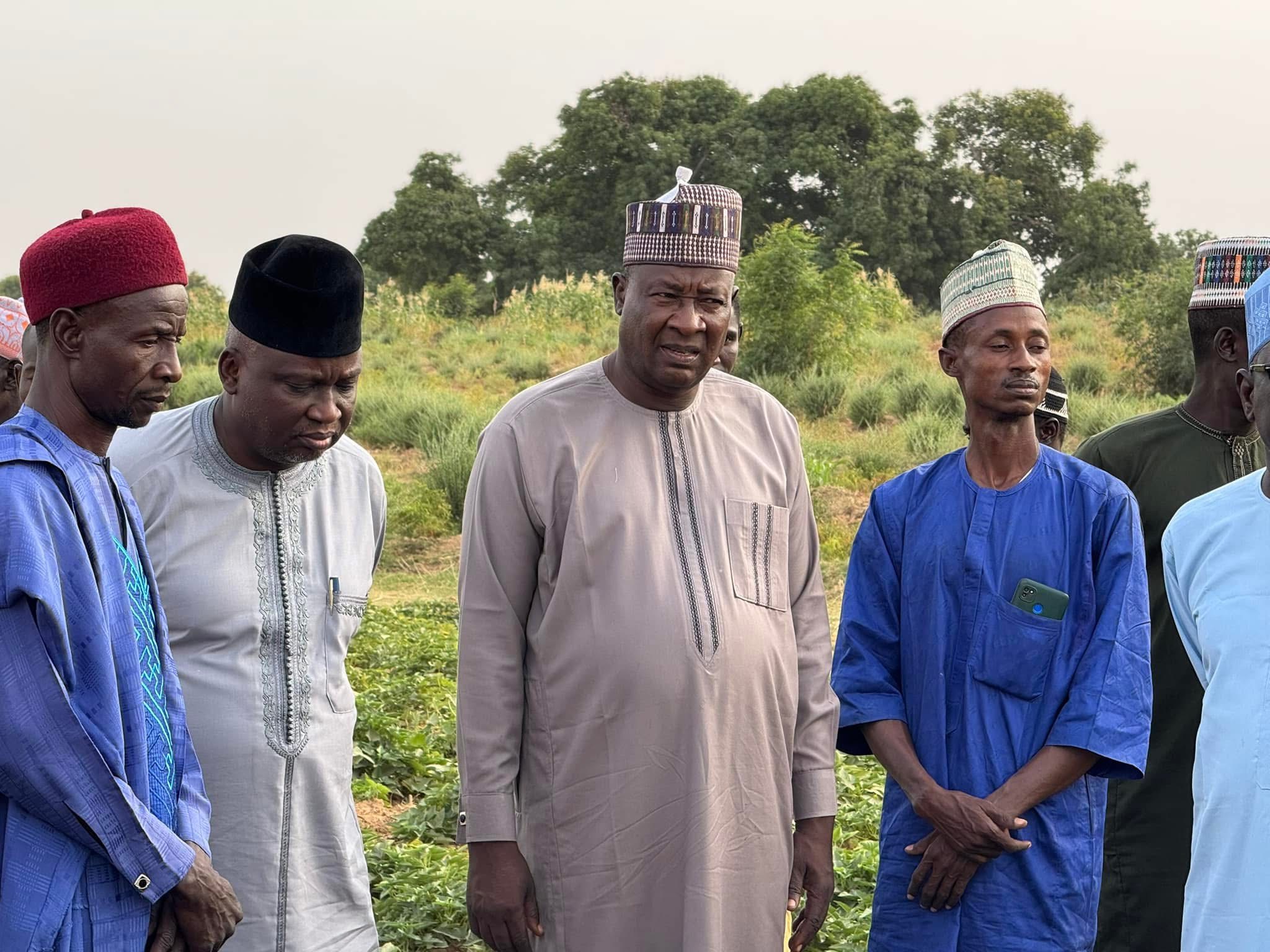
 During an inspection tour of the affected communities, Alhaji Shehu Ma’azu, Commissioner for Agriculture and Natural Resources in Kebbi, provided insights into the programme’s objectives.
During an inspection tour of the affected communities, Alhaji Shehu Ma’azu, Commissioner for Agriculture and Natural Resources in Kebbi, provided insights into the programme’s objectives.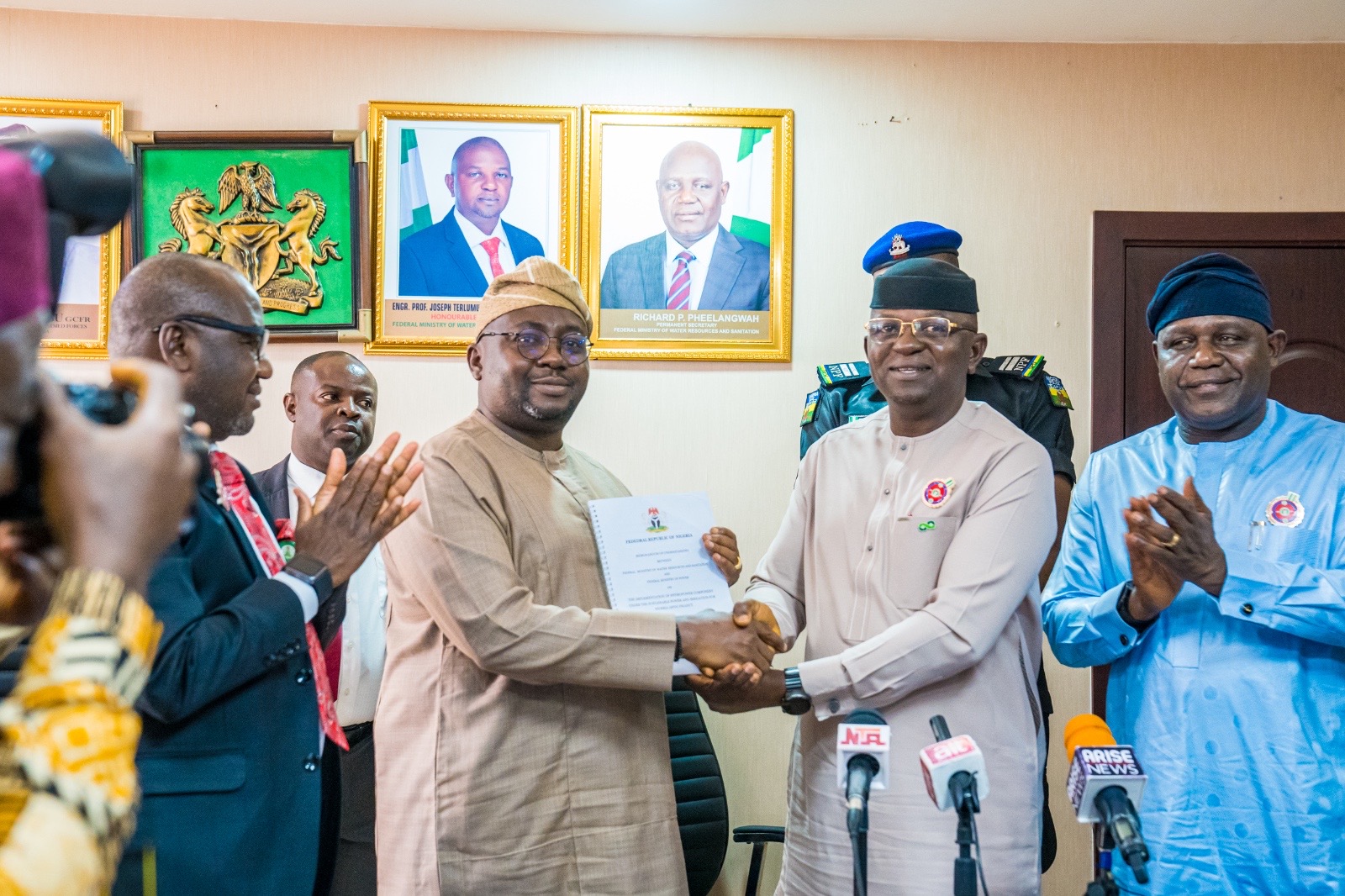
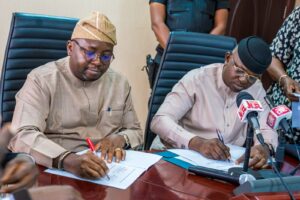 As Chairman of the SPIN Preparatory Team, Utsev assured stakeholders of the ministries’ and partners’ full commitment to the successful implementation of the project.
As Chairman of the SPIN Preparatory Team, Utsev assured stakeholders of the ministries’ and partners’ full commitment to the successful implementation of the project.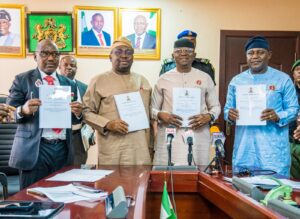 Adelabu also stressed the role of distributed energy systems in enhancing reliability.
Adelabu also stressed the role of distributed energy systems in enhancing reliability. 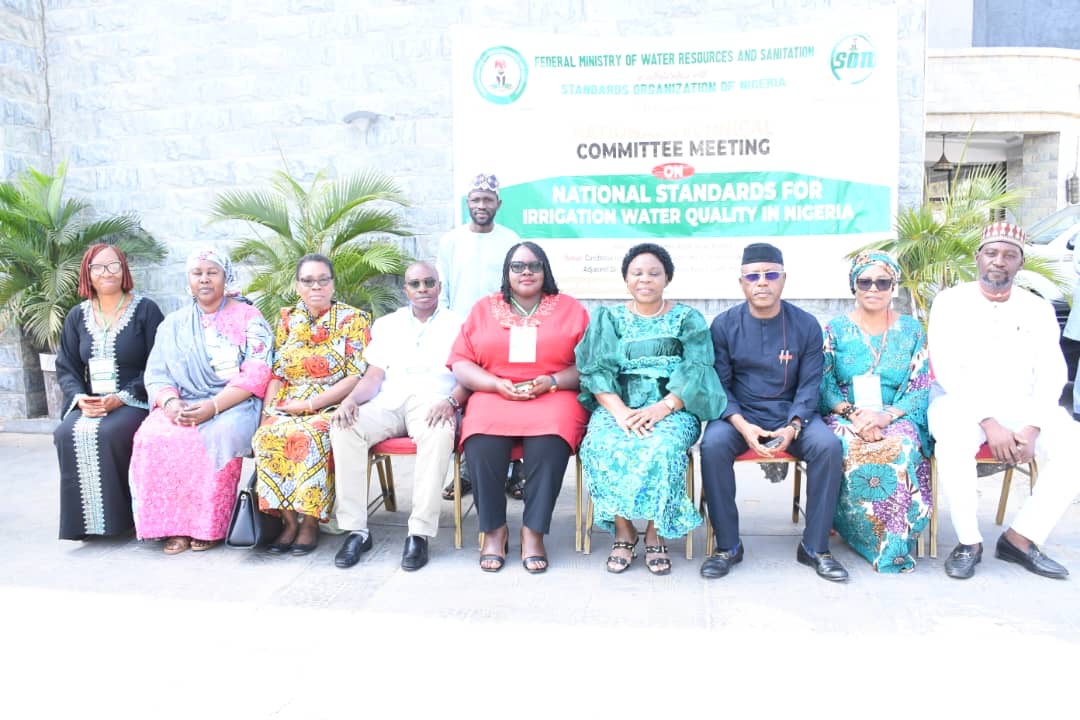
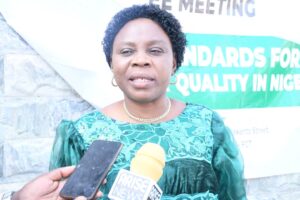 Earlier, Mrs Elizabeth Ugoh, Director of Water Quality Control and Sanitation at the ministry, emphasised that validating irrigation standards would help tackle key development challenges in Nigeria.
Earlier, Mrs Elizabeth Ugoh, Director of Water Quality Control and Sanitation at the ministry, emphasised that validating irrigation standards would help tackle key development challenges in Nigeria.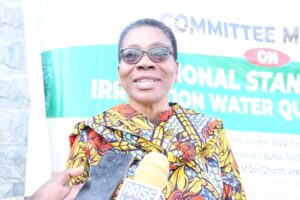 Dr Ifeanyi Okeke, SON Director General, announced the release of two key documents to enhance national standardisation.
Dr Ifeanyi Okeke, SON Director General, announced the release of two key documents to enhance national standardisation.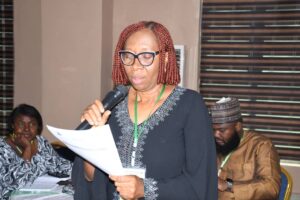 Okeke noted that these efforts supported Nigeria’s commitment to the UN’s SDGs and encouraged participants to contribute their expertise in developing a framework for sustainable irrigation water safety.
Okeke noted that these efforts supported Nigeria’s commitment to the UN’s SDGs and encouraged participants to contribute their expertise in developing a framework for sustainable irrigation water safety.